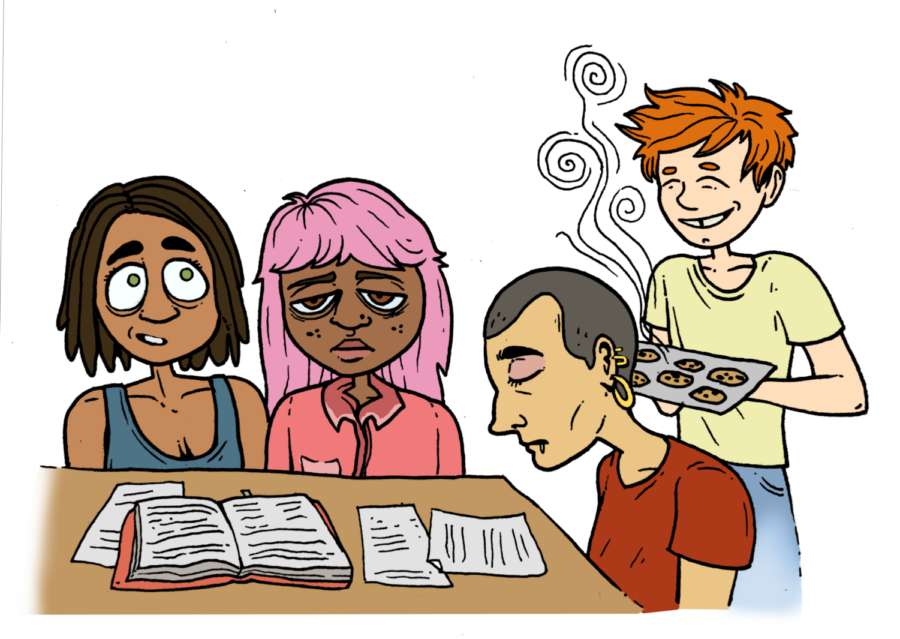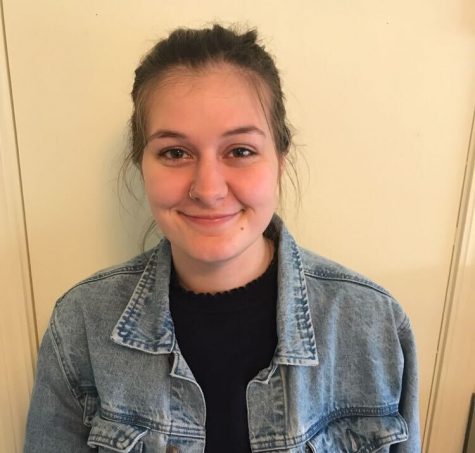Opinion | Self-care obscures altruism during finals week
December 10, 2018
Before you stress cry into your bread bowl at Panera then promptly throw on a face mask in the name of self-care, remember there are other ways to cope during finals season.
One way to cope is through community care. Community care means students — after getting themselves to a place of relative sanity mentally — can look beyond themselves to help support their community of peers in any way that they can. Self-care is not self-indulgent when it is done to promote mental health. However, the recent wave of self-care promotion has seemingly erased the idea of supporting one another.
Self-care is a new trend that has erupted over the past few years. For some, self-care means buying junk food or cozying up and watching TV shows. For others, it means going for a jog to regain composure. Throughout these varying definitions, many have lost sight of the fact that you can help yourself while also helping others.
When justifying self-care, people may use the infamous Audre Lorde quote from her 1988 book entitled “A Burst of Light” — “Caring for myself is not self-indulgence, it is self-preservation and that is an act of political warfare.”
Self-care does not need to be justified when it is an act of preservation. However, many now take self-care to mean the consumerist notions of buying sheet masks or other self-care kits, spending $7 on gelato or bingeing “Bridget Jones” with a bottle of wine. But self-care really means of getting enough sleep, eating well or developing goals that help you prioritize your life.
It is important to use self-care in ways that help you deal with the problems you’re facing rather than putting them off. However, looking beyond yourself to those around you can also allow people to help one another. When a person’s coping mechanisms can’t stretch beyond themselves, those around them who could use additional support don’t get any help.
Helping someone else does not mean forging ahead when you can’t even get out of bed in the morning. Community care comes into play once you are emotionally able to help someone else. Finals have a way a paralyzing students in stress, which is why helping others allows you to focus on someone else, and feel better once you’re finished helping them.
You feel better because, according to the Mental Health Foundation in the UK, doing good deeds makes people feel less stressed and happier overall — these deeds can include calling friends and letting family know you love and appreciate them. So even though students might not be able to fit long periods of volunteering into finals week, doing kind deeds for their peers can make them and others around them feel better.
Humans are naturally altruistic because do-gooderism gives us a surge of happiness. A 2008 study conducted by Francesca Borgonovi, a senior analyst at the Organisation for Economic Co-operation and Development, suggests that volunteering and helping others leads to increased happiness.
More positive energy, whether caused by kind deeds or a result of receiving a kind deed, is the kind of support system students should try to build, especially during the stress of finals. Long hours at the library followed by less time asleep creates overexhaustion in many students, so more kindness would be a welcome change to the excruciating hours of finals week.
But random acts of kindness can also be completely finals-oriented. To brighten up a friend’s mood during finals week, you can bring them food when they’re pulling an all-nighter at Hillman or be a shoulder to lean on as they vent about their academic struggles.
Students can even take their self-care methods and make them social. Take a break with all your friends and relax together instead of going back to your dorm, apartment or house and watching Netflix by yourself. Socialization and good deeds — while they might not seem feasible due to the time crunch of finals season — are worth it to increase your happiness and lower your stress.
There is value in alone time and recuperation, but there is also merit to trekking through finals week with your support system together. Carrying each other through the sleepless nights, the topics that don’t make sense, the stress and the exhaustion will not only benefit your friends, but help you get through the week knowing that you don’t have to rely on just yourself.
Everyone deserves time to get their emotions together and lift themselves out of a funk. But community care has a place in our lives as well. During this stressful week, take the time you need for yourself, but don’t forget that others might need you, too.




